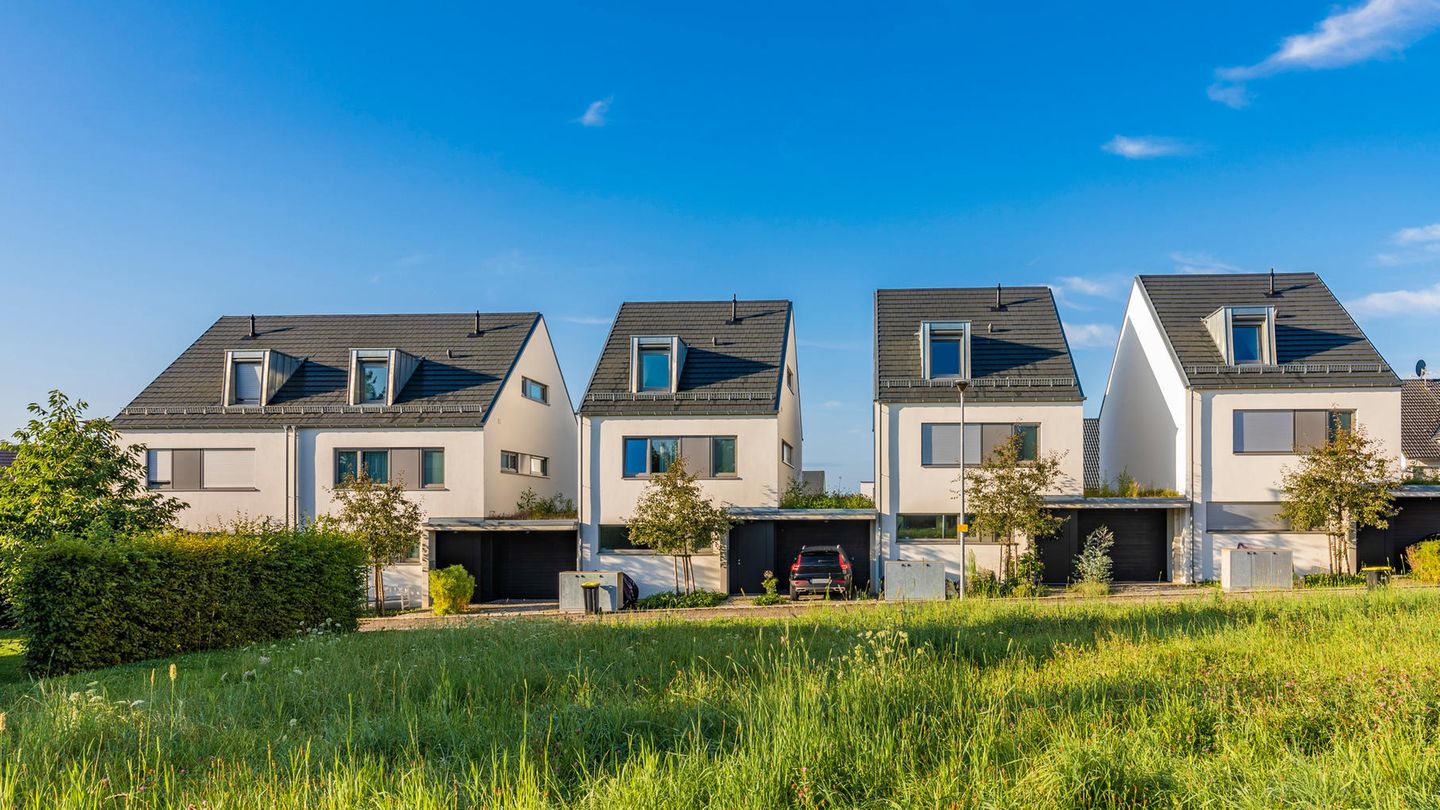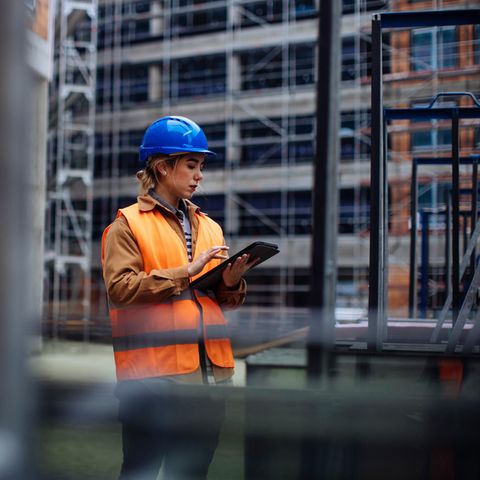Series: Economic crisis – and me?
Buying a house despite economic uncertainty: does it make sense?
Copy the current link
Many people want to buy an apartment or a house, but financing is not getting any easier during the crisis. What requirements you should meet now.
At the moment, those willing to buy are still extremely unsettled: Many would like to take the plunge into owning their own property, as the high number of clicks and search queries on the relevant real estate platforms reveal. “The demand from buyers is almost as high again as it was in the boom times of the market,” i.e. in the summer of 2022, says Gesa Crockford, managing director of Immoscout 24. Nevertheless, many seekers do not manage to realize their dream of owning a home. That’s why the number of sales actually made is still far behind the previous year’s figures.
On the one hand, this is because the range of houses and apartments on offer is still quite clear. In the current uncertain times, comparatively few sellers are parting with their properties. In addition, the economic crisis has caused new construction to almost completely collapse. The construction industry is one of the first sectors to weaken when the economic situation deteriorates. What this means for the current situation is that there are so many people looking for properties on the market that several interested parties are vying for the contract for individual houses and apartments. As a result, not everyone who wants to buy gets a chance.
The consequences of this can already be foreseen: real estate prices are rising again. Rents are also rising significantly because anyone willing to buy who cannot find what they are looking for has to continue renting. This increases the pressure on the market, especially in the sought-after metropolitan areas where many people would like to move because there are still jobs there, and in the suburbs of the big cities.
Purchase prices fell for two years
Purchase prices had previously fallen for two years after central banks sharply raised their interest rates. This made mortgage loans much more expensive. In some cases, the interest rates quadrupled, and the monthly installments to be paid increased by around twice as much for buyers. The result was that suddenly hardly anyone wanted to buy a house or apartment in 2022 and 2023. The market completely weakened because many people were either no longer able to afford the rent or were hoping that house prices would fall even further. Many buyers waited.
Now many want to strike again, but the banks are now also taking a closer look. This is also related to the crisis: Falling house prices have also made it more difficult for banks to quantify the true value of houses – and possible loan amounts. In addition, credit institutions do not want to take the risk that many buyers will not be able to pay their installments in the long term due to rising living costs because wages and salaries do not grow at the same rate. That’s why they add higher security buffers to the calculations, and banks are currently checking more strictly and for longer to see which buyers actually get a loan, says managing director Daniel Ritter from the Von Poll Immobilien brokerage house: “The requirements are higher than before, buyers also have to have more equity. ” And if in doubt, provide proof of higher income.
For those willing to buy, this means that they can obtain a financing confirmation from the bank if they have found an interesting property. This shows the agent during the viewing that they can afford the property in question. “But the financing confirmations from the banks have become less binding,” warns Ritter. “So it’s more uncertain whether the loan will actually work out.” If in doubt, a bank will still reject the loan and the search continues.
The economic crisis – together with the sharp rise in inflation after 2020 – has meant that “real incomes have not yet returned to the 2020 level,” says Carsten Brzeski, chief economist at ING Germany. That’s why the market is “still a long way from the level we had a few years ago when it comes to property affordability.” Although loan interest rates are currently falling slightly again and are currently around 3 to 3.5 percent for a 15-year fixed interest rate, the purchase prices have not fallen sharply enough in comparison. The price savings do not outweigh the additional financing costs. Since the unemployment rate is currently rising, banks will be reluctant to grant loans for a while, Brzeski’s prediction is: “That’s why the real estate market won’t go straight back into the super boom.”
Better to buy an apartment or a house now?
Real estate economists are currently advising everyone who wants to buy: As long as they have accumulated enough equity, i.e. preferably 20 percent of the loan amount they need – plus additional costs, which amount to around 10 percent of the property’s value – they should try to buy the house. It probably won’t be cheaper than it is now, warns Germany’s best-known real estate expert, IW economist Michael Voigtländer: “We will see further price increases in 2025. Because the rising rents are making buying more attractive again.” However, all market observers confirm that they should not calculate too tightly. Especially when buying older existing buildings, it is difficult to calculate what renovation or modernization costs the buyer will have to pay in the next few years. So it’s better to calculate generously than too narrowly.
For all buyers who have already managed to own a home but are currently worried about their loans, the following applies: They have little to worry about during the interest rate fixation period, as long as they can afford their installments over the long term. However, the economic weakness could lead to the European Central Bank (ECB) cutting interest rates even further. This could also make the loan interest rates a little cheaper – but not by much. A lot of interest rate reduction optimism has already flowed into the loan interest rates, so they are already correspondingly low.
If you need a follow-up loan or new loan in the foreseeable future, you should secure the interest rate level as long as possible, even if it seems high compared to 2018. Because it is unlikely that interest rates will slip well below the 2 percent mark again soon. The longer you log the loan interest rate, the more certain you are that the rates will remain the same over the long term. It is very important to choose a loan where you can adjust and reduce the rate if necessary. In case the crisis does affect your salary.
Source: Stern





